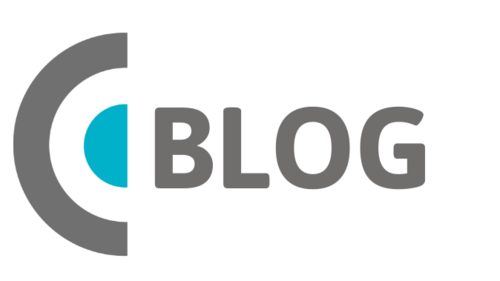Cost-of-living crisis: Working together is right on the money
31 January 2023
This blog highlights the damaging effects of falling incomes on people’s pockets, some opportunities to boost income, and how local money advice partnerships play a crucial role in supporting people struggling to get by in the current crisis.The widespread fallout from the cost-of-living crisis was vividly captured in a new Public Health Scotland report. Some of the damaging risks facing those already struggling include fuel poverty, family stress, delays in children’s development, poorer mental health, harmful gambling, increased drinking and drug use, crime, social isolation, and homelessness, to name but a few. Those households most likely affected by falling incomes and rising debt include lone-parents, single-adults, and families with someone sick or disabled, unable to work because of illness and injury, or looking after others.
At some points in our lives, we will all rely on public services and support, like education, the NHS, and the welfare system. So, it’s vital that when financially struggling, we can access the support we are entitled to. The latest Department of Work and Pension figures on unclaimed benefits reveal that up to £1.7 billion in Pension Credits went unclaimed, with 850,000 families losing about £1,900 each year. At the same time, £1.1 billion in Housing Benefit also went unclaimed, leaving up to 260,000 pensioners out of pocket by £4,000 each year.
Encouraging people to claim these large amounts of money could prevent some of the damage identified in the Public Health Scotland report. Some NHS Leaders have also warned that the increasing levels of fuel poverty will be a public health emergency, causing and exacerbating physical and mental illness across the whole population, and straining already stretched health and care services.
A new Joseph Rowntree Foundation report on understanding poverty in the UK found that the drop in poverty rates for larger families and young children was partly due to the £20 weekly increase in Universal Credit payments during the COVID-19 pandemic. It is likely that the poverty rates for these families will go up again as the £20 boost was stopped in October 2021, and we are now seeing the return of welfare sanctions. A recent parliamentary question from a Glasgow MP showed that over a three-month period, Universal Credit sanctions across Glasgow city amounted to £937,000, leaving already struggling households losing on average £250 each month.
It has been revealed that the UK government’s plans to increase benefits to keep up with inflation could actually be wiped out due to deductions from advance payments. People can obtain an advance payment when waiting five to six weeks for a first claim. Citizens Advice Scotland estimated that 188,300 households in Scotland claiming Universal Credit were liable for deductions, many of these because people are taking an advance payment before receiving their first claim. This could leave tens of thousands at risk of seeing no meaningful increase, as the deductions could effectively wipe out any inflationary increase. A scenario powerfully conveyed in the cost of living diary, from Sophia, a mother of two children:
You have to borrow your first six weeks of universal credit, otherwise you get nothing. So they put me on a six-week loan – putting me in debt for my own benefit by about £1,000, which they make me pay back at £40 a month.
There’s a strong social justice case to halt advance payments and provide grants that are non-repayable. A recent Joseph Rowntree Foundation poll in Scotland found that one-third of households had no savings or less than £250, and more worryingly nearly 60% of single parents had none at all. Providing grants could create breathing space for people like Sophia to move beyond daily struggles and managing debts to think about a different future.
Against the backdrop of austerity and inequalities widening during the pandemic, money and welfare advice services often find themselves at the sharp end of supporting people in acute emergencies. In Glasgow, people can obtain support from listed advice services working across the city. Alongside services open to the general public, money advice partnerships, funded by council, housing and NHS partners, have emerged to tackle inequalities.
The Healthier Wealthier Children project is an advice partnership set up in in 2010 which provides advice to pregnant women and families attending services, such as midwifery or health visiting, across NHS Greater Glasgow and Clyde. About 4,000 advice referrals each year has led to around £4 million being put into the pockets of women and families. Lone parents and families with a disability have also benefited from the project. A more recent partnership involves the continuing roll out of welfare advice workers based in 150 GP practices serving the most disadvantaged communities across Scotland. Two-thirds of these GP practices are within NHS Greater Glasgow and Clyde.
In Glasgow city, a council-led partnership involves placing money advice workers in schools, which led to many struggling families receiving £3.7 million since 2020. Returning to the theme of unclaimed pensioner benefits, an outreach project targeting elderly citizens reported £2.1 million put into their pocket within the first 12 months.
The widening gaps in health between people living in the most deprived areas of Scotland and the rest of the population remains a major concern. To address these gaps, a new report by the Health Foundation lists a set of collaborative actions that includes cross-sector working that allows for the pooling of resources and shared goals. Although the advice partnerships described in this blog are not silver bullets, there is scope for other sectors to learn from the positive collaborative outcomes. In other words, putting ‘money in pockets’ as part of a set of measures to tackle Scotland’s persistent health inequalities.
This blog is part of a series of blogs on the cost-of-living crisis. The other blogs in the series can be accessed here:




